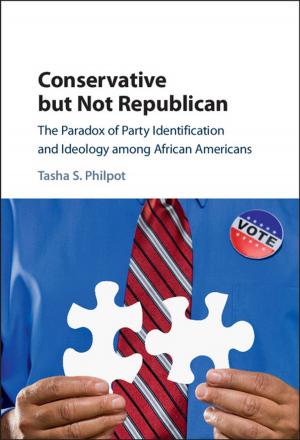Legal and Economic Principles of World Trade Law
Nonfiction, Reference & Language, Law, International, Business & Finance| Author: | American Law Institute | ISBN: | 9781107065932 |
| Publisher: | Cambridge University Press | Publication: | April 22, 2013 |
| Imprint: | Cambridge University Press | Language: | English |
| Author: | American Law Institute |
| ISBN: | 9781107065932 |
| Publisher: | Cambridge University Press |
| Publication: | April 22, 2013 |
| Imprint: | Cambridge University Press |
| Language: | English |
The World Trade Organization (WTO) Agreement covers international commerce in goods and services including measures that directly affect trade, such as import tariffs and quotas, and almost any type of internal measure with an impact on trade. Legal and Economic Principles of World Trade Law contributes to the analysis of the texts of World Trade Law in law and economics, reporting work done to identify improvements to the interpretation of the Agreement. It starts with background studies, the first summarizes The Genesis of the GATT, which highlights the negotiating history of the GATT 1947–8; the second introduces the economics of trade agreements. These are followed by two main studies. The first, authored by Bagwell, Staiger and Sykes, discusses legal and economic aspects of the GATT regulation of border policy instruments, such as import tariffs and import quotas. The second, written by Grossman, Horn and Mavroidis, focuses on the core provision for the regulation of domestic policy instruments - the National Treatment principles in Art. III GATT.
The World Trade Organization (WTO) Agreement covers international commerce in goods and services including measures that directly affect trade, such as import tariffs and quotas, and almost any type of internal measure with an impact on trade. Legal and Economic Principles of World Trade Law contributes to the analysis of the texts of World Trade Law in law and economics, reporting work done to identify improvements to the interpretation of the Agreement. It starts with background studies, the first summarizes The Genesis of the GATT, which highlights the negotiating history of the GATT 1947–8; the second introduces the economics of trade agreements. These are followed by two main studies. The first, authored by Bagwell, Staiger and Sykes, discusses legal and economic aspects of the GATT regulation of border policy instruments, such as import tariffs and import quotas. The second, written by Grossman, Horn and Mavroidis, focuses on the core provision for the regulation of domestic policy instruments - the National Treatment principles in Art. III GATT.















